Mohammad-Ali A'râbi
How to Create New RxJS Operators
#1about 5 minutes
The history and evolution of ReactiveX and RxJS
ReactiveX originated at Microsoft to simplify concurrent programming and evolved into libraries like RxJava at Netflix and the widely used RxJS.
#2about 4 minutes
How pipeable operators changed the RxJS API
RxJS version 5.5 introduced the pipe function, decoupling operators from the observable object and enabling developers to create their own.
#3about 5 minutes
Addressing the challenge of long, unreadable pipelines
Using RxJS extensively in a Node.js backend led to long, unreadable pipelines, which were improved by extracting logic into named functions.
#4about 4 minutes
Preserving state in pipelines using tuples and zip operators
The flatZipMap operator was created to solve the problem of losing access to previous values in a stream by pairing results into a tuple.
#5about 6 minutes
Implementing custom operators with TypeScript generics
Creating a custom operator involves defining a function that returns an OperatorFunction with specific input and output types using TypeScript generics.
#6about 6 minutes
Advanced typing for complex custom operators
Complex operators like flatListFlatMap demonstrate how advanced TypeScript features like ObservableInput and ObservedValueOf are essential for correct type inference.
#7about 28 minutes
Q&A on testing, pitfalls, and contributing
The Q&A session covers unit testing custom operators, handling errors, key differences with RxJava, and how to contribute to open-source RxJS libraries.
Related jobs
Jobs that call for the skills explored in this talk.
MARKT-PILOT GmbH
Stuttgart, Germany
Remote
€75-90K
Senior
Java
TypeScript
+1
Matching moments

02:49 MIN
Using AI to overcome challenges in systems programming
AI in the Open and in Browsers - Tarek Ziadé

08:07 MIN
Exploring modern JavaScript performance and new CSS features
WeAreDevelopers LIVE – AI, Freelancing, Keeping Up with Tech and More

03:16 MIN
Improving the developer feedback loop with specialized tools
Developer Time Is Valuable - Use the Right Tools - Kilian Valkhof

05:28 MIN
The origin story of the Polypane developer browser
Developer Time Is Valuable - Use the Right Tools - Kilian Valkhof

04:56 MIN
Recreating React components using AI and dev tools
WeAreDevelopers LIVE – AI, Freelancing, Keeping Up with Tech and More

11:32 MIN
The industry's focus on frameworks over web fundamentals
WeAreDevelopers LIVE – Frontend Inspirations, Web Standards and more

06:47 MIN
Solving date and time issues with the Temporal API
WeAreDevelopers LIVE – You Don’t Need JavaScript, Modern CSS and More

03:41 MIN
How to define and operationalize your company values
Values-Based Hiring: Seeing People Beyond Their Skills
Featured Partners
Related Videos
 33:25
33:25Practice makes perfect - when it comes to RxJS
Jan-Niklas Wortmann
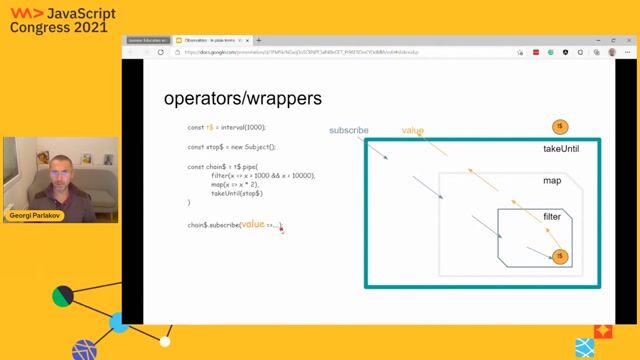 50:18
50:18Observables in Plain terms
Georgi Parlakov
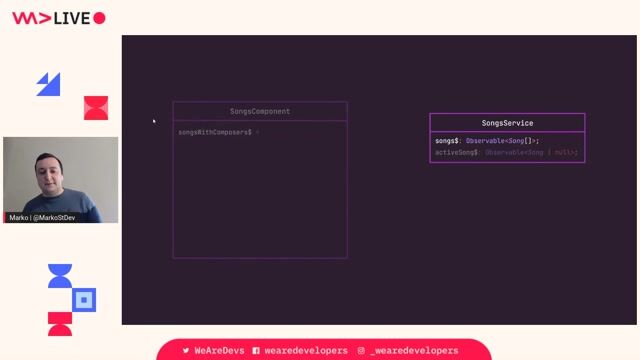 26:58
26:58NgRx Tips for Future-Proof Angular Apps
Marko Stanimirović
 58:03
58:03Angular Signals: what's all the fuss about?
Daniela Bonvini
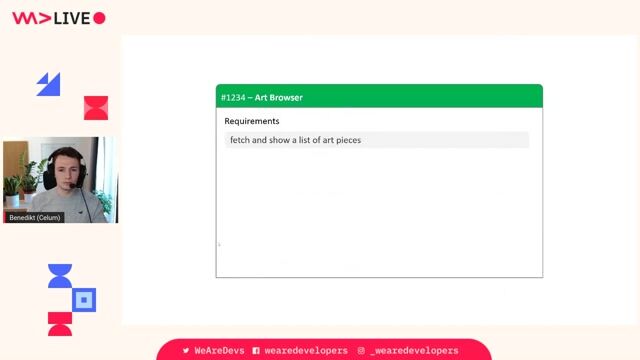 50:28
50:28Angular tips/tricks you can use from tomorrow on
Benedikt Starzengruber
 42:16
42:16Hello generics, goodbye boilerplate!
Miroslav Jonaš
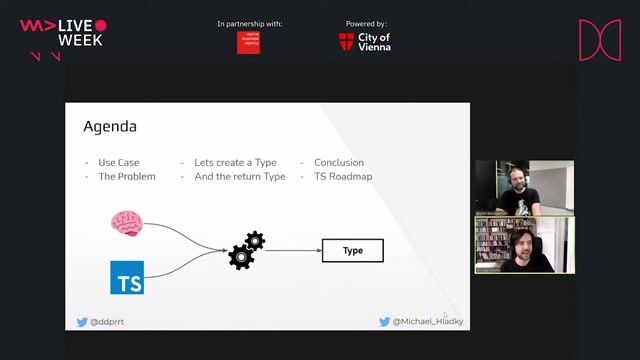 43:20
43:20The Art and Craft of Type Development
Michael Hladky & Stefan Baumgartner
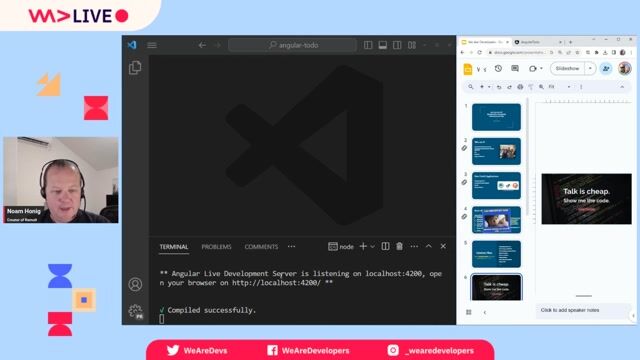 51:04
51:04Meet Your New BFF: Backend to Frontend without the Duct Tape
Noam Honig
Related Articles
View all articles



From learning to earning
Jobs that call for the skills explored in this talk.


Confideck GmbH
Vienna, Austria
Remote
Intermediate
Senior
Node.js
MongoDB
TypeScript

Adaptive Financial Consulting
Barcelona, Spain
CSS
HTML
RxJS
React
JavaScript
+1


OKAPI: Orbits
Barcelona, Spain
Remote
€70-90K
API
React
Node.js
+2

Oxigent Technologies
Barcelona, Spain
€40K
Senior
React
TypeScript

Client Server
Burnham, United Kingdom
Remote
£60K
API
React
Python
+6


Rithum
Remote
Intermediate
API
GIT
Azure
NoSQL
+19